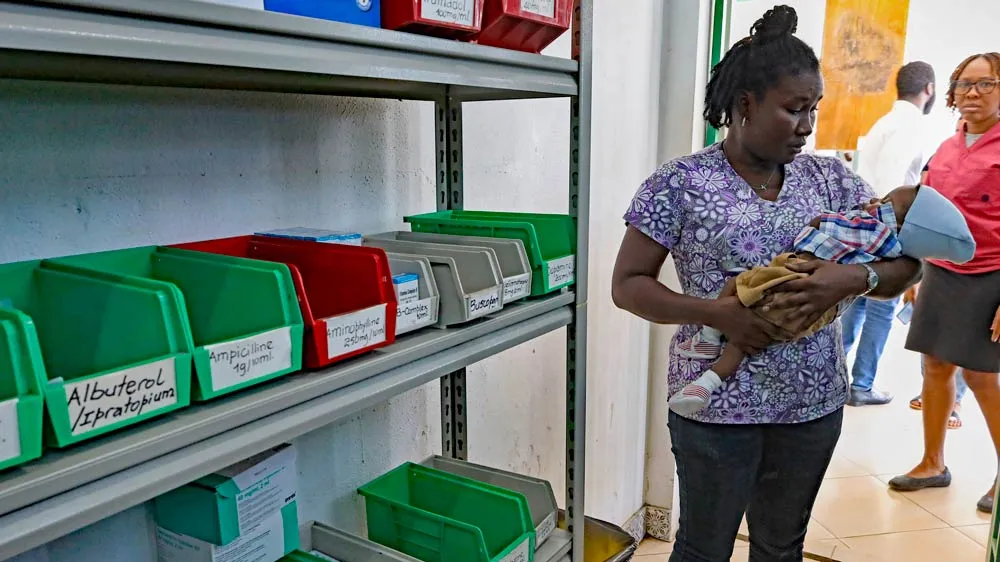November 12, 2011
Pioneering Mother's Legacy Lives On Through PFLAG
Michael K. Lavers READ TIME: 4 MIN.
A mother's simple act of walking alongside her gay son sparked a worldwide movement.
Jeanne Manford conceived the idea that would eventually become Parents, Families and Friends of Lesbians and Gays in 1972 after she marched with her gay son Morty in New York's annual Pride parade. Nearly four decades later, the ally movement has come of age in the eyes of those who continue to carry Manford's torch.
"We are still on the frontlines of this work, and we have always known that family and community acceptance is key to the health and well-being of our loved ones," said Jody Huckaby, executive director of PFLAG.
More than 300 people from across the United States, Canada, Latin America and even Portugal gathered in Alexandria, Va., on Nov. 3-6 for PFLAG's National Convention. Second Lady Dr. Jill Biden once again spoke out against bullying as she stressed the importance of family acceptance in a speech she delivered at the opening of the conference on Friday, Nov. 4. The organization also honored Betty DeGeneres, mother of comedian and talk show host Ellen DeGeneres, on Saturday, Nov. 5.
Nearly 200 PFLAG members lobbied members of Congress on Thursday, Nov. 3, to support the Safe Schools Improvement Act, which would require schools that receive federal funding to adopt an anti-LGBT bullying or harassment, policy and the Student Non-Discrimination Act, which would require any public school that receives federal funding to ban discrimination against any student based on their actual or perceived sexual orientation or gender identity and expression.
"PFLAG demonstrated its power by sharing its members' most valuable currency on the Hill: their personal stories about how bullying has hurt their families and made their kids feel unsafe in the classroom," said Huckaby.
Doctor Caitlin Ryan, director of the Family Acceptance Project at San Francisco State University, highlighted data that shows a direct correlation on rates of family acceptance of LGBT youth and increased propensity of health and mental well-being in adulthood.
A trained social worker, Ryan and Rafael D�az launched the Family Acceptance Project in 1999. It contains four components: study how parents, families and caregivers react to and adjust to a child's sexual orientation or gender identity and expression, develop data-based training and assessment materials for health care providers, juvenile justice officials and others who work with LGBT youth and their families, create resources and what Ryan describes as a new family support model to help ethnically and religiously diverse families support their LGBT children.
"What we've learned over time is that families can learn how to support that LGBT person, but how one looks at them has to be culturally appropriate," Ryan told EDGE before the conference. "It has to really be done in ways that respect their religious traditions and their cultural values."
The Platas of Modesto, Calif., are among the eight families that the Family Acceptance Project highlights in a series of videos that accompany its research.
A self-described "macho Marine dad," Edward Plata struggled to accept his eldest son E.J.'s sexual orientation. He threw away the Little Mermaid doll with which his son played when he was a child and replaced it with G.I. Joes-E.J.'s mother, Elizabeth, always replaced it. Edward Plata even scolded his son when he told him that his classmates had bullied him in school.
"As time went on, I started thinking about myself and what I'm going to tell my friends," said Edward Plata as he and his family drove back to their Central Valley home after visiting his son and his boyfriend in San Francisco earlier this month. "A macho Marine dad doesn't put out gay kids. He puts out athletes and scholars and devil dog Marines."
Edward Plata was not surprised when he found out that his son is gay.
"E.J. really came out to her [Elizabeth], but I did have a talk with E.J.," he said. "With teary eyes I said, son, I love you and we will with every situation here."
The Platas soon began to reach out to other parents of LGBT children. They also began to host get-togethers for local LGBT teens at their home twice a month. "I'm very passionate when I speak about my son and the kids who are in our group; I feel like they are like my kids," said Edward Plata. "I try to respect people to have their own feelings because I've been there."
The Family Acceptance Project's findings came as no surprise to Romeu Monteiro, a 22-year-old graduate student from Porto, Portugal, who attends Carnegie Mellon University in Pittsburgh. Monteiro's mother has become one of Portugal's highest profile LGBT activists. As a member of the Association of Mothers and Fathers for the Freedom of Sexual Orientation and Gender Identity, she regularly appears in the Portuguese media to discuss family acceptance and other LGBT-specific issues.
"It's very good that they finally showed it scientifically in a way that they can use this data to show the government, the schools, to all these entities that families and communities should accept their children because it's for their own health," he said.
PFLAG Omaha [Neb.] President Carrie Spencer agreed.
"PFLAG is all about families," she said. "Doctor Ryan's work takes it that much more further about family acceptance and the roles families play in the health and well-being of LGBTQ youth and just how powerful the family unit is."
Based in Washington, D.C., Michael K. Lavers has appeared in the New York Times, BBC, WNYC, Huffington Post, Village Voice, Advocate and other mainstream and LGBT media outlets. He is an unapologetic political junkie who thoroughly enjoys living inside the Beltway.




